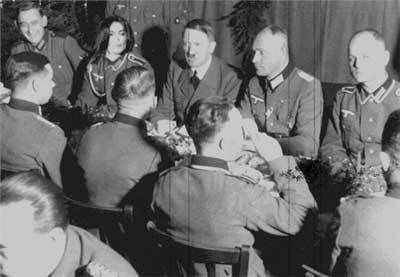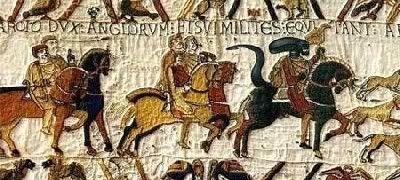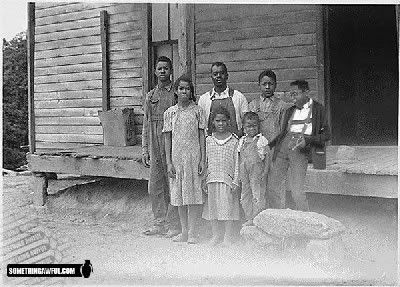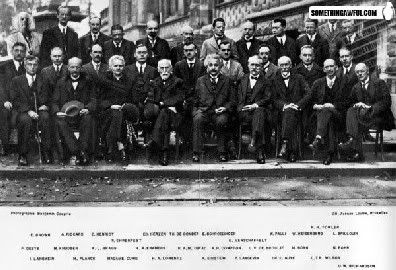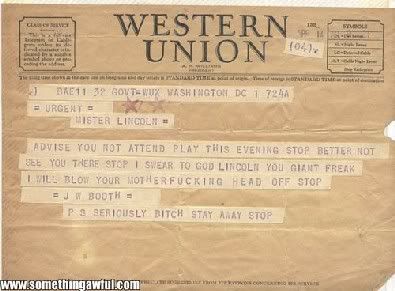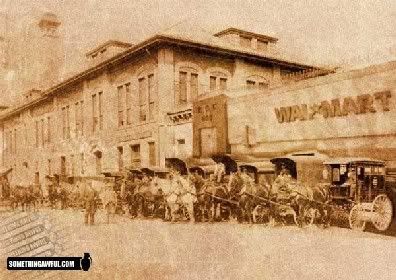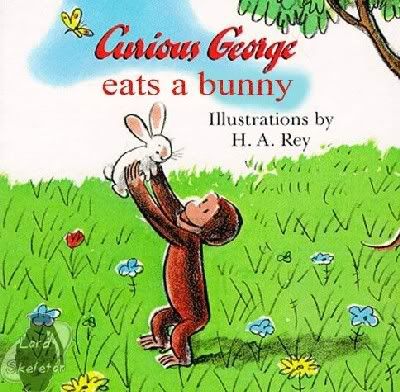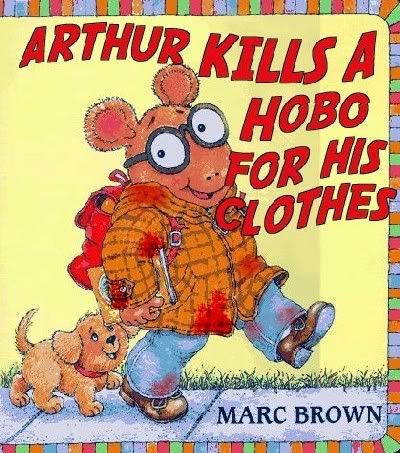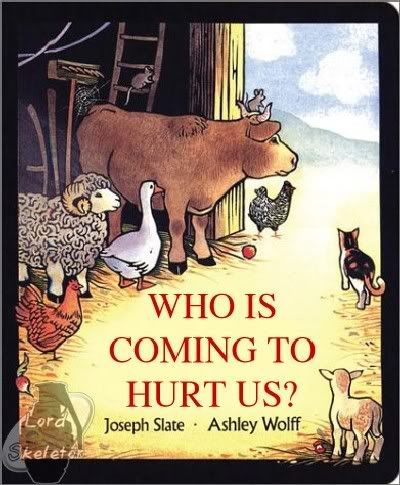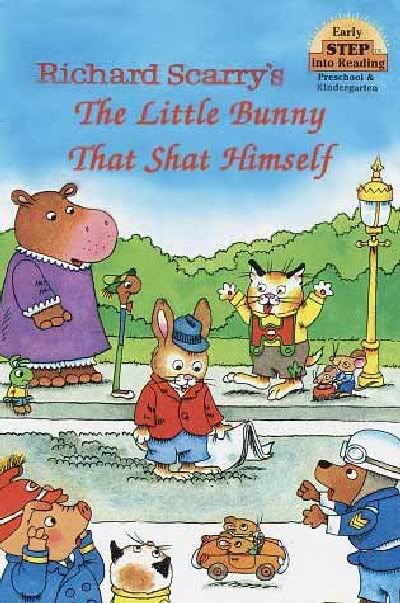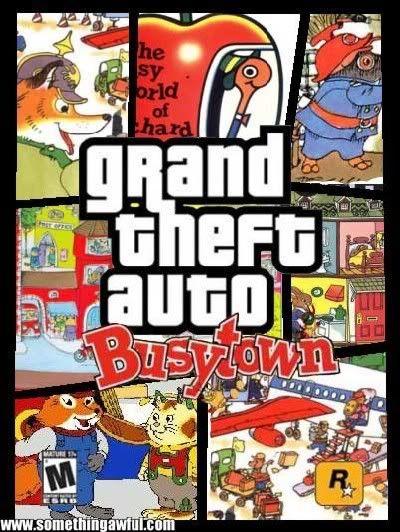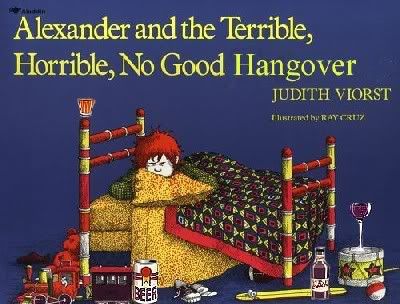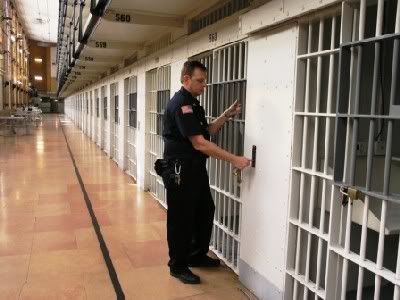Enough for Everyone 03

Isaiah the Prophet, by Michelangelo on the Sistine Chapel
Each of the prophetic books is a sort of written sermon. They are not transcripts of spoken sermons, they were written to be read, primarily, but the purpose is the same as a sermon. They expound on the meaning of the written revelation of God and comment on society's faithfulness or lack thereof. They also provide motivation for change. Most of the famous "Messainic" predictions throughout the prophets help us to understand God's salvation, but most of the material in these books tells us why we need God's grace. These larger portions are much less well known.
In the prophets, the main reason we need God's grace is idolatry. We have not worshipped Yahweh as we ought. Of course, idolatry is much more problematic than simply constructing totem poles and carved statues.[1] Anything (or anyone) that is preferred to Yahweh is an idol. Idolatry is associated in the prophets with two specific sins that both typify and illustrate the broader concept of idolatry. They are the immoral use of the body, and the immoral use of money -- adultery and injustice. Political conservatives usually emphasize one, while liberals emphasize the other. This paper will deal only with what the prophets say about money, since that is our topic at hand.
Isaiah 2.7-8, Their land is full of silver and gold; there is no end to their treasures. Their land is full of horses; there is no end to their chariots. Their land is full of idols; they bow down to the work of their hands, to what their fingers have made.
Isaiah 2.20, In that day men will throw away to the rodents and bats their idols of silver and idols of gold, which they made to worship.
Isaiah 44.12-20, The blacksmith takes a tool and works with it in the coals; he shapes an idol with hammers, he forges it with the might of his arm. He gets hungry and loses his strength; he drinks no water and grows faint. The carpenter measures with a line and makes an outline with a marker; he roughs it out with chisels and marks it with compasses. He shapes it in the form of man, of man in all his glory,that it may dwell in a shrine. He cut down cedars, or perhaps took a cypress or oak. He let it grow among the trees of the forest, or planted a pine, and the rain made it grow. It is man's fuel for burning; some of it he takes and warms himself, he kindles a fire and bakes bread. But he also fashions a god and worships it; he makes an idol and bows down to it. Half of the wood he burns in the fire; over it he prepares his meal, he roasts his meat and eats his fill. He also warms himself and says, "Ah! I am warm; I see the fire." From the rest he makes a god, his idol; he bows down to it and worships. He prays to it and says, "Save me; you are my god." They know nothing, they understand nothing; their eyes are plastered over so they cannot see, and their minds closed so they cannot understand. No one stops to think, no one has the knowledge or understanding to say, "Half of it I used for fuel; I even baked bread over its coals, I roasted meat and I ate. Shall I make a detestable thing from what is left? Shall I bow down to a block of wood?" He feeds on ashes, a deluded heart misleads him; he cannot save himself, or say, "Is not this thing in my right hand a lie?"
Hosea 2.8, [The LORD says,] She has not acknowledged that I was the one who gave her the grain, the new wine and oil, who lavished on her the silver and gold— which they used for Baal.
The prophets continually bring examples of Israel (and other countries) extorting, robbing and oppressing to gain more wealth. This is a form of idolatry and God hates it.
Isaiah 3.14-15, The LORD enters into judgment against the elders and leaders of his people: "It is you who have ruined my vineyard; the plunder from the poor is in your houses. What do you mean by crushing my people and grinding the faces of the poor?" declares the Lord, the LORD Almighty.
Isaiah 10.1-4, Woe to those who make unjust laws, to those who issue oppressive decrees, to deprive the poor of their rights and withhold justice from the oppressed of my people, making widows their prey and robbing the fatherless. What will you do on the day of reckoning, when disaster comes from afar? To whom will you run for help? Where will you leave your riches? Nothing will remain but to cringe among the captives or fall among the slain. Yet for all this, his anger is not turned away, his hand is still upraised.
Jeremiah 22.13-17, "Woe to him who builds his palace by unrighteousness, his upper rooms by injustice, making his countrymen work for nothing, not paying them for their labor. He says, 'I will build myself a great palace with spacious upper rooms.' So he makes large windows in it, panels it with cedar and decorates it in red. "Does it make you a king to have more and more cedar? Did not your father have food and drink? He did what was right and just, so all went well with him. He defended the cause of the poor and needy, and so all went well. Is that not what it means to know me?" declares the LORD. "But your eyes and your heart are set only on dishonest gain, on shedding innocent blood and on oppression and extortion."
Ezekiel 16.49-50, " 'Now this was the sin of your sister Sodom: She and her daughters were arrogant, overfed and unconcerned; they did not help the poor and needy. They were haughty and did detestable things before me. Therefore I did away with them as you have seen.
Ezekiel 22.29-31, The people of the land practice extortion and commit robbery; they oppress the poor and needy and mistreat the alien, denying them justice. I looked for a man among them who would build up the wall and stand before me in the gap on behalf of the land so I would not have to destroy it, but I found none. So I will pour out my wrath on them and consume them with my fiery anger, bringing down on their own heads all they have done, declares the Sovereign LORD.
Ezekiel 45.9-12," 'This is what the Sovereign LORD says: You have gone far enough, O princes of Israel! Give up your violence and oppression and do what is just and right. Stop dispossessing my people, declares the Sovereign LORD. You are to use accurate scales, an accurate ephah and an accurate bath. The ephah and the bath are to be the same size, the bath containing a tenth of a homer and the ephah a tenth of a homer; the homer is to be the standard measure for both. The shekel is to consist of twenty gerahs. Twenty shekels plus twenty-five shekels plus fifteen shekels equal one mina.
Hosea 12.6-7, But you must return to your God; maintain love and justice, and wait for your God always. The merchant uses dishonest scales; he loves to defraud.
Micah 2.1-3, Woe to those who plan iniquity, to those who plot evil on their beds! At morning's light they carry it out because it is in their power to do it. They covet fields and seize them, and houses, and take them. They defraud a man of his home, a fellowman of his inheritance. Therefore, the LORD says: "I am planning disaster against this people, from which you cannot save yourselves. You will no longer walk proudly, for it will be a time of calamity.
Amos 2.6-8, This is what the LORD says: "For three sins of Israel, even for four, I will not turn back {my wrath}. They sell the righteous for silver, and the needy for a pair of sandals. They trample on the heads of the poor as upon the dust of the ground and deny justice to the oppressed. Father and son use the same girl and so profane my holy name. They lie down beside every altar on garments taken in pledge. In the house of their god they drink wine taken as fines.
Amos 4.1-2, Hear this word, you cows of Bashan on Mount Samaria, you women who oppress the poor and crush the needy and say to your husbands, "Bring us some drinks!" The Sovereign LORD has sworn by his holiness: "The time will surely come when you will be taken away with hooks, the last of you with fishhooks.
Amos 5.11-14, You trample on the poor and force him to give you grain. Therefore, though you have built stone mansions, you will not live in them; though you have planted lush vineyards, you will not drink their wine. For I know how many are your offenses and how great your sins. You oppress the righteous and take bribes and you deprive the poor of justice in the courts. Therefore the prudent man keeps quiet in such times, for the times are evil. Seek good, not evil, that you may live. Then the LORD God Almighty will be with you, just as you say he is.
Amos 6.3-7, You put off the evil day and bring near a reign of terror. You lie on beds inlaid with ivory and lounge on your couches. You dine on choice lambs and fattened calves. You strum away on your harps like David and improvise on musical instruments. You drink wine by the bowlful and use the finest lotions, but you do not grieve over the ruin of Joseph. Therefore you will be among the first to go into exile; your feasting and lounging will end.
Micah 3.11-12, Her leaders judge for a bribe, her priests teach for a price, and her prophets tell fortunes for money. Yet they lean upon the LORD and say, "Is not the LORD among us? No disaster will come upon us." Therefore because of you, Zion will be plowed like a field, Jerusalem will become a heap of rubble, the temple hill a mound overgrown with thickets.
Habakkuk 1.14-17, You have made men like fish in the sea, like sea creatures that have no ruler. The wicked foe pulls all of them up with hooks, he catches them in his net, he gathers them up in his dragnet; and so he rejoices and is glad. Therefore he sacrifices to his net and burns incense to his dragnet, for by his net he lives in luxury and enjoys the choicest food. Is he to keep on emptying his net, destroying nations without mercy?
Zephaniah 1.11-13, Wail, you who live in the market district; all your merchants will be wiped out, all who trade with silver will be ruined. At that time I will search Jerusalem with lamps and punish those who are complacent, who are like wine left on its dregs, who think, 'The LORD will do nothing, either good or bad.' Their wealth will be plundered, their houses demolished. They will build houses but not live in them; they will plant vineyards but not drink the wine.
Zechariah 7.9-14, "This is what the LORD Almighty says: 'Administer true justice; show mercy and compassion to one another. Do not oppress the widow or the fatherless, the alien or the poor. In your hearts do not think evil of each other.' But they refused to pay attention; stubbornly they turned their backs and stopped up their ears. They made their hearts as hard as flint and would not listen to the law or to the words that the LORD Almighty had sent by his Spirit through the earlier prophets. So the LORD Almighty was very angry. " 'When I called, they did not listen; so when they called, I would not listen,' says the LORD Almighty. 'I scattered them with a whirlwind among all the nations, where they were strangers. The land was left so desolate behind them that no one could come or go. This is how they made the pleasant land desolate.' "
Zechariah 11.4-6, This is what the LORD my God says: "Pasture the flock marked for slaughter. Their buyers slaughter them and go unpunished. Those who sell them say, 'Praise the LORD, I am rich!' Their own shepherds do not spare them. For I will no longer have pity on the people of the land," declares the LORD. "I will hand everyone over to his neighbor and his king. They will oppress the land, and I will not rescue them from their hands."
Malachi 3.5, "So I will come near to you for judgment. I will be quick to testify against sorcerers, adulterers and perjurers, against those who defraud laborers of their wages, who oppress the widows and the fatherless, and deprive aliens of justice, but do not fear me," says the LORD Almighty.
We ought to look to God for our source of strength and security. Generosity should characterize the people of God.
Jeremiah 9.23-24, This is what the LORD says: "Let not the wise man boast of his wisdom or the strong man boast of his strength or the rich man boast of his riches, but let him who boasts boast about this: that he understands and knows me, that I am the LORD, who exercises kindness, justice and righteousness on earth, for in these I delight," declares the LORD.[2]
Jeremiah 29.1, 4-9, This is the text of the letter that the prophet Jeremiah sent from Jerusalem to the surviving elders among the exiles and to the priests, the prophets and all the other people Nebuchadnezzar had carried into exile from Jerusalem to Babylon… This is what the LORD Almighty, the God of Israel, says to all those I carried into exile from Jerusalem to Babylon: "Build houses and settle down; plant gardens and eat what they produce. Marry and have sons and daughters; find wives for your sons and give your daughters in marriage, so that they too may have sons and daughters. Increase in number there; do not decrease. Also, seek the peace and prosperity of the city to which I have carried you into exile. Pray to the LORD for it, because if it prospers, you too will prosper." Yes, this is what the LORD Almighty, the God of Israel, says: "Do not let the prophets and diviners among you deceive you. Do not listen to the dreams you encourage them to have. They are prophesying lies to you in my name. I have not sent them," declares the LORD.[3]
Malachi 3.8-10, "Will a man rob God? Yet you rob me. "But you ask, 'How do we rob you?' In tithes and offerings. You are under a curse—the whole nation of you—because you are robbing me. Bring the whole tithe into the storehouse, that there may be food in my house. Test me in this," says the LORD Almighty, "and see if I will not throw open the floodgates of heaven and pour out so much blessing that you will not have room enough for it.
God promises that his people will live in prosperity in the future. Isaiah 54 - 55 and 60 - 66 are good examples. Here are a few more.
Isaiah 2.2-4, In the last days the mountain of the LORD's temple will be established as chief among the mountains; it will be raised above the hills, and all nations will stream to it. Many peoples will come and say, "Come, let us go up to the mountain of the LORD, to the house of the God of Jacob. He will teach us his ways, so that we may walk in his paths." The law will go out from Zion, the word of the LORD from Jerusalem. He will judge between the nations and will settle disputes for many peoples. They will beat their swords into plowshares and their spears into pruning hooks. Nation will not take up sword against nation, nor will they train for war anymore.
Isaiah 25.6 On this mountain the LORD Almighty will prepare a feast of rich food for all peoples, a banquet of aged wine— the best of meats and the finest of wines.
Isaiah 42.1-4, "Here is my servant, whom I uphold, my chosen one in whom I delight; I will put my Spirit on him and he will bring justice to the nations. He will not shout or cry out, or raise his voice in the streets. A bruised reed he will not break, and a smoldering wick he will not snuff out. In faithfulness he will bring forth justice; he will not falter or be discouraged till he establishes justice on earth. In his law the islands will put their hope."
Jeremiah 31.31-37, "The time is coming," declares the LORD, "when I will make a new covenant with the house of Israel and with the house of Judah. It will not be like the covenant I made with their forefathers when I took them by the hand to lead them out of Egypt, because they broke my covenant, though I was a husband to them," declares the LORD. "This is the covenant I will make with the house of Israel after that time," declares the LORD. "I will put my law in their minds and write it on their hearts. I will be their God, and they will be my people. No longer will a man teach his neighbor, or a man his brother, saying, 'Know the LORD,' because they will all know me, from the least of them to the greatest," declares the LORD. "For I will forgive their wickedness and will remember their sins no more." This is what the LORD says, he who appoints the sun to shine by day, who decrees the moon and stars to shine by night, who stirs up the sea so that its waves roar— the LORD Almighty is his name: "Only if these decrees vanish from my sight," declares the LORD, "will the descendants of Israel ever cease to be a nation before me." This is what the LORD says: "Only if the heavens above can be measured and the foundations of the earth below be searched out will I reject all the descendants of Israel because of all they have done," declares the LORD.
Ezekiel 34.25-31, " 'I will make a covenant of peace with them and rid the land of wild beasts so that they may live in the desert and sleep in the forests in safety. I will bless them and the places surrounding my hill. I will send down showers in season; there will be showers of blessing. The trees of the field will yield their fruit and the ground will yield its crops; the people will be secure in their land. They will know that I am the LORD, when I break the bars of their yoke and rescue them from the hands of those who enslaved them. They will no longer be plundered by the nations, nor will wild animals devour them. They will live in safety, and no one will make them afraid. I will provide for them a land renowned for its crops, and they will no longer be victims of famine in the land or bear the scorn of the nations. Then they will know that I, the LORD their God, am with them and that they, the house of Israel, are my people, declares the Sovereign LORD. You my sheep, the sheep of my pasture, are people, and I am your God, declares the Sovereign LORD.' "
Joel 2.23-27, Be glad, O people of Zion, rejoice in the LORD your God, for he has given you the autumn rains in righteousness. He sends you abundant showers, both autumn and spring rains, as before. The threshing floors will be filled with grain; the vats will overflow with new wine and oil. "I will repay you for the years the locusts have eaten— the great locust and the young locust, the other locusts and the locust swarm—my great army that I sent among you. You will have plenty to eat, until you are full, and you will praise the name of the LORD your God, who has worked wonders for you; never again will my people be shamed. Then you will know that I am in Israel, that I am the LORD your God, and that there is no other; never again will my people be shamed.
Zechariah 14.14, Judah too will fight at Jerusalem. The wealth of all the surrounding nations will be collected—great quantities of gold and silver and clothing.
There is a strong connection in the prophets between worship and justice. Israel had emphasized external and formal forms of worship while neglecting to take care of the poor and oppressed. Of course, the feasts, fasts, celebrations, rituals, sacrifices and prayers are all important. God commands them in the law books of the Pentateuch, but apart from justice, they are useless, no matter how "well-intentioned" the people or how "heart-felt" the expressions.
Isaiah 1.10-18, Hear the word of the LORD, you rulers of Sodom; listen to the law of our God, you people of Gomorrah! "The multitude of your sacrifices— what are they to me?" says the LORD. "I have more than enough of burnt offerings, of rams and the fat of fattened animals; I have no pleasure in the blood of bulls and lambs and goats. When you come to appear before me, who has asked this of you, this trampling of my courts? Stop bringing meaningless offerings! Your incense is detestable to me. New Moons, Sabbaths and convocations—I cannot bear your evil assemblies. Your New Moon festivals and your appointed feasts my soul hates. They have become a burden to me; I am weary of bearing them. When you spread out your hands in prayer, I will hide my eyes from you; even if you offer many prayers, I will not listen. Your hands are full of blood; wash and make yourselves clean. Take your evil deeds out of my sight! Stop doing wrong, learn to do right! Seek justice, encourage the oppressed. Defend the cause of the fatherless, plead the case of the widow. "Come now, let us reason together," says the LORD. "Though your sins are like scarlet, they shall be as white as snow; though they are red as crimson, they shall be like wool."
Isaiah 58.1-10, Shout out, do not hold back! Lift up your voice like a trumpet! Announce to my people their rebellion, to the house of Jacob their sins. Yet day after day they seek me and delight to know my ways, as if they were a nation that practiced righteousness and did not forsake the ordinance of their God; they ask of me righteous judgments, they delight to draw near to God. "Why do we fast, but you do not see? Why humble ourselves, but you do not notice?" Look, you serve your own interest on your fast day, and oppress all your workers. Look, you fast only to quarrel and to fight and to strike with a wicked fist. Such fasting as you do today will not make your voice heard on high. Is such the fast that I choose, a day to humble oneself? Is it to bow down the head like a bulrush, and to lie in sackcloth and ashes? Will you call this a fast, a day acceptable to the LORD? Is not this the fast that I choose: to loose the bonds of injustice, to undo the thongs of the yoke, to let the oppressed go free, and to break every yoke? Is it not to share your bread with the hungry, and bring the homeless poor into your house; when you see the naked, to cover them, and not to hide yourself from your own kin? Then your light shall break forth like the dawn, and your healing shall spring up quickly; your vindicator shall go before you, the glory of the LORD shall be your rear guard. Then you shall call, and the LORD will answer; you shall cry for help, and he will say, Here I am. If you remove the yoke from among you, the pointing of the finger, the speaking of evil, if you offer your food to the hungry and satisfy the needs of the afflicted, then your light shall rise in the darkness and your gloom be like the noonday.
Jeremiah 7.1-10, This is the word that came to Jeremiah from the LORD : "Stand at the gate of the LORD's house and there proclaim this message: " 'Hear the word of the LORD, all you people of Judah who come through these gates to worship the LORD. This is what the LORD Almighty, the God of Israel, says: Reform your ways and your actions, and I will let you live in this place. Do not trust in deceptive words and say, "This is the temple of the LORD, the temple of the LORD, the temple of the LORD!" If you really change your ways and your actions and deal with each other justly, if you do not oppress the alien, the fatherless or the widow and do not shed innocent blood in this place, and if you do not follow other gods to your own harm, then I will let you live in this place, in the land I gave your forefathers for ever and ever. But look, you are trusting in deceptive words that are worthless. " 'Will you steal and murder, commit adultery and perjury, burn incense to Baal and follow other gods you have not known, and then come and stand before me in this house, which bears my Name, and say, "We are safe"-safe to do all these detestable things? Has this house, which bears my Name, become a den of robbers to you? But I have been watching! declares the LORD.[4]
Micah 6.6-8, With what shall I come before the LORD, and bow myself before God on high? Shall I come before him with burnt offerings, with calves a year old? Will the LORD be pleased with thousands of rams, with ten thousands of rivers of oil? Shall I give my firstborn for my transgression, the fruit of my body for the sin of my soul? He has told you, O mortal, what is good; and what does the LORD require of you but to do justice, and to love kindness, and to walk humbly with your God?
[1] Even so, we should not commit the "chronological snobbery" of thinking the ancients were so naïve as to think that something they had literally carved had become a sort of god to be worshipped. Rather, we should remember that they used these objects as a form for worshipping a god that already existed. In a similar way, we like to take pictures of those we love and look at them on the wall, or in albums. I especially like to look at pictures of my family and close friends -- because I love them so much. I have "honored" some of the best pictures by placing them on my wall. Of course, it's not the paper, the camera or the picture I honor, it is the person.
[2] See also 1 Corinthians 1.26-29.
[3] See also Romans 12.20-21.
[4] See also Matthew 5.23-24.
Labels: original writing, poverty, racism, theology

